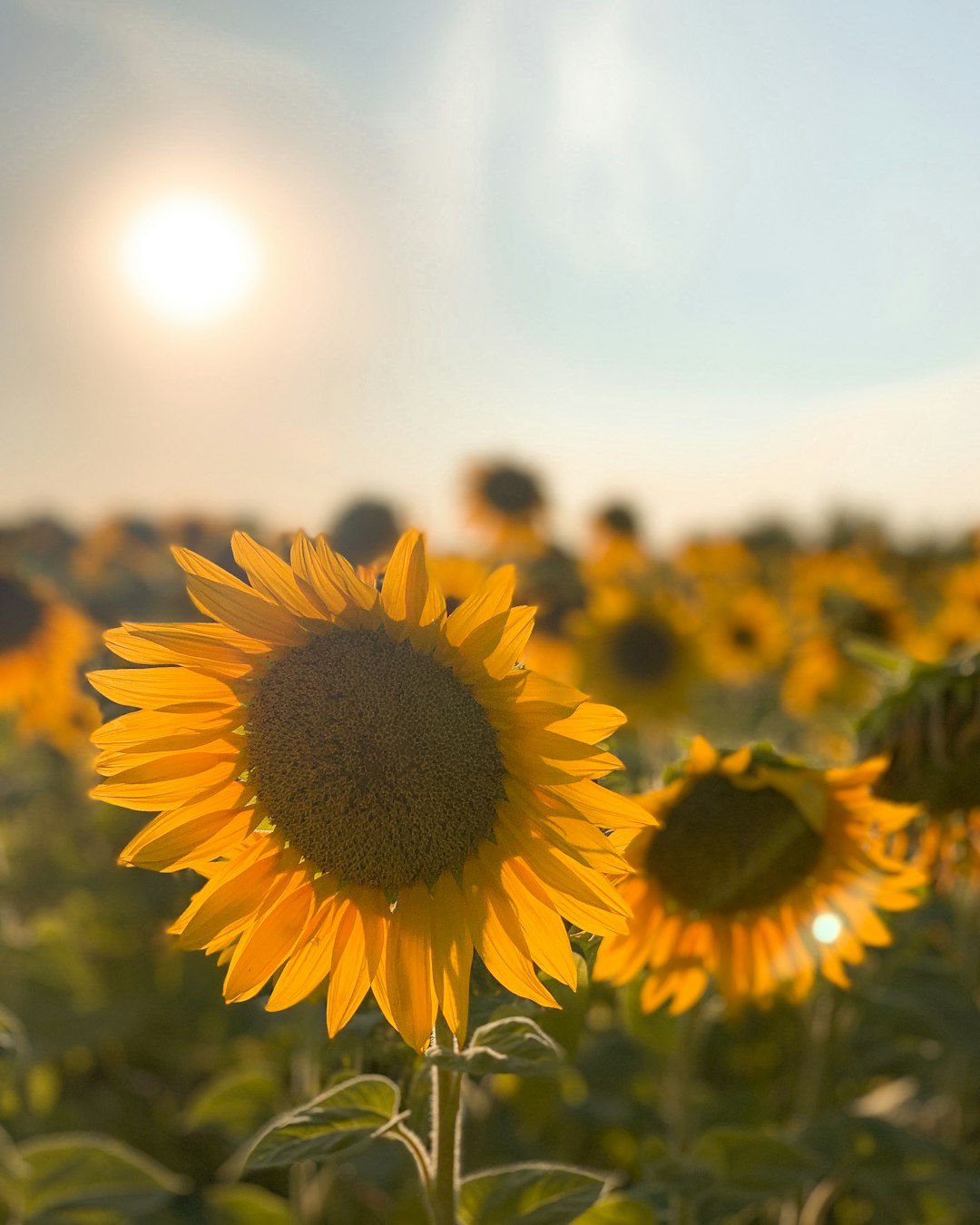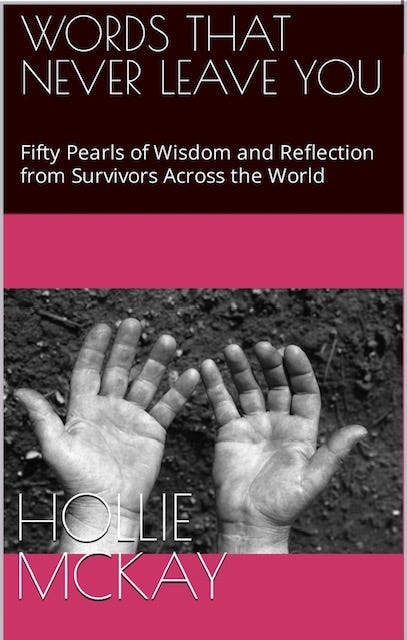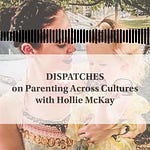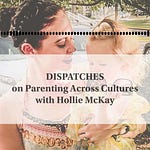TRANSCRIPT. PODCAST FEATURING HOLLIE MCKAY & DENNIS SANTIAGO. (Please excuse typos, edited for clarity)
DS: Welcome to a special series on Words that Never Leave You: Fifty Pearls of Wisdom and Reflection from Survivors Across the World. A book by Hollie McKay, where she has vignettes of things that she will never forget. Quote number one out of the book: This is not your war. Where did this quote come from and why is it so important to you?

HM: This one of those phrases that never left me. This line was spoken to me when I was in Ukraine and this was several days after the invasion. It was a chaotic time. I really didn't have a support structure when I was there, I was working alone. It was difficult to find a trusted fixer, there was no way to get around, and drivers were charging a lot of money. Being an independent journalist it was a very rough time without a colleague or somebody to fall back on.
Well, just after the invasion and I was in my hotel and I suffered this really horrible burn to my leg. It was probably the worst injury I've ever received and there was no way to be able to go out and get any burn cream or proper help. It was a bad situation and I knew that if I got an infection, I was in a lot of trouble.
Luckily, because I had spent time in Ukraine before the war. If I was just going straight into a war, I think it would have been worse because I wouldn't have had the Rolodex. However, I thankfully had contacts of local people that I built up. I had come to know some friends at the Pirogov Mobile Hospital and called them and I said, I'm so sorry to be taking resources and time away from you, but I have this really severe burn all across my leg and and round to the back and I don't know what to and need some help.
I could barely walk, so they picked me up in their little ambulance to took me to their makeshift headquarters in Kyiv. And mind you, this is early days of the war when Russians were at the gates and ready to come into Kyiv. So there was just a lot of a lot of uncertainty. I went in and a lovely nurse named Victoria, she was actually a nurse in a burn unit, promised to take care of me.
She took one look at my leg and burst into tears. She just said, you need to go home. Of course I it was such a challenge to kind of get back in there, that there was no way that I was going to do that. And second, there really wasn't an easy way to go home. There was no functioning airport, every train is filled with refugees, people that were doing car trips were charging money that that me, as an independent journalist without a network work or anything behind me certainly couldn't have. But Victoria was very worried about an infection and what would happen.
I was grateful that it was winter time because I think if it hadn't been winter then it would have been a lot worse, although it was very challenging because I could no longer work in my thermal clothes so I was basically wearing cotton sweat pants in extremely frigid temperatures.
But back to Victoria.
As she is treating me, my mum in Sydney called, and my mom was very upset, and so I had my mum on speaker. Then Victoria's daughter, who lived in London, called her and was very upset and crying because of the war, the situation.
But I just remember that Victoria said to me… you should go home, this is not your war. And it really gave me a pause for reflection because I think that, you know in life, we just have to differentiate between the wars and the conflicts that are ours to fight and those that belong to others or other times of our lives. We have many battlefields, inside and out, and they're always going to be there. But really, we have to determine what fights are worth our sacrifice. This requires us to be very present because we can't win everything and not every war is our war.
Her sentiment has really given me a lot more pause for thought. Life is not about going to every war or having to cover every conflict that's happening. It's about having to choose where you feel you can make a difference and when you need to prioritize something else.
DS: OK, so the natural follow up to that is how has that changed you as a journalist?
HM: It has given me a lot more perspective to understand what is my war and what isn't, both externally and internally. What are my battles to fight and what are battles for other people to fight and where we are willing to draw the line? We can't be everywhere doing everything, and we can't be fighting every conflict around us, whether at home or with our neighbor or in an restaurant. Where do we draw that line? And I think that's a question that we often don't stop to ask ourselves in our lives. But for me, it's something I ask myself a lot more now.
PURCHASE YOUR COPY OF “WORDS THAT NEVER LEAVE YOU” TO READ MORE REFLECTIONS AND ANECDOTES
** Short read of meaningful lessons gleaned from the ordinary forced to become extraordinary
For speaking queries please contact meta@metaspeakers.org
I am also available for a select number of private coaching sessions for those wishing to write a book or venture into the foreign journalism space. Please contact directly for rates hollie@holliemckay.com
PLEASE CONSIDER A PAID SUBSCRIPTION TO THIS SUBSTACK TO HELP KEEP INDEPENDENT, AGENDA-FREE WRITING AND JOURNALISM ALIVE. THANK YOU SO MUCH FOR YOUR SUPPORT.













Share this post